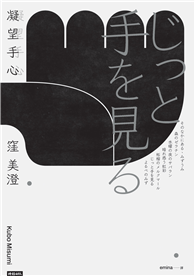This book examines the experiences of couples with different language backgrounds and different cultural origins as they negotiate love, partnership and parenting. It is based on the author’s doctoral research into the attitudes and experiences of the English-speaking background (ESB) partners of non-English-speaking background (NESB) migrants in Sydney, Australia. In particular, it seeks to understand how these English speakers negotiate being in a romantic relationship with someone who has a different first language. It explores how those from an ESB reconcile the negative perspectives of Anglophone culture towards "other" languages, with their desire to be a good partner who respects the linguistic differences in their relationship. The book is organised into six chapters, which move from a focus on the language of the individual, to the languages of the couple, and then to the wider family. The main finding is that although ESB partners had very different beliefs and attitudes towards language learning to their migrant partners, they attempted to compensate for these differences in various ways. It will be of particular interest to students and scholars in the fields of language education, minority languages, and language policy and planning.
| FindBook |
有 1 項符合
Linguistic Intermarriage in Australia: Between Pride and Shame的圖書 |
 |
Linguistic Intermarriage in Australia: Between Pride and Shame 作者:Irving Torsh 出版社:Palgrave Pivot 出版日期:2019-09-12 語言:英文 規格:精裝 / 143頁 / 21.08 x 14.73 x 1.02 cm / 普通級/ 初版 |
| 圖書館借閱 |
| 國家圖書館 | 全國圖書書目資訊網 | 國立公共資訊圖書館 | 電子書服務平台 | MetaCat 跨館整合查詢 |
| 臺北市立圖書館 | 新北市立圖書館 | 基隆市公共圖書館 | 桃園市立圖書館 | 新竹縣公共圖書館 |
| 苗栗縣立圖書館 | 臺中市立圖書館 | 彰化縣公共圖書館 | 南投縣文化局 | 雲林縣公共圖書館 |
| 嘉義縣圖書館 | 臺南市立圖書館 | 高雄市立圖書館 | 屏東縣公共圖書館 | 宜蘭縣公共圖書館 |
| 花蓮縣文化局 | 臺東縣文化處 |
|
|
圖書介紹 - 資料來源:博客來 評分:
圖書名稱:Linguistic Intermarriage in Australia: Between Pride and Shame
內容簡介
作者簡介
Hanna Irving Torsh is Postdoctoral Research Fellow in the Department of Linguistics in the Faculty of Human Sciences at Macquarie University, Sydney, Australia. She won the 2019 Michael Clyne Prize for her doctoral thesis and was awarded a Macquarie Research Excellence Scholarship in 2012. Hanna contributes to the peer-reviewed sociolinguistic research site, Language on the Move.
|











